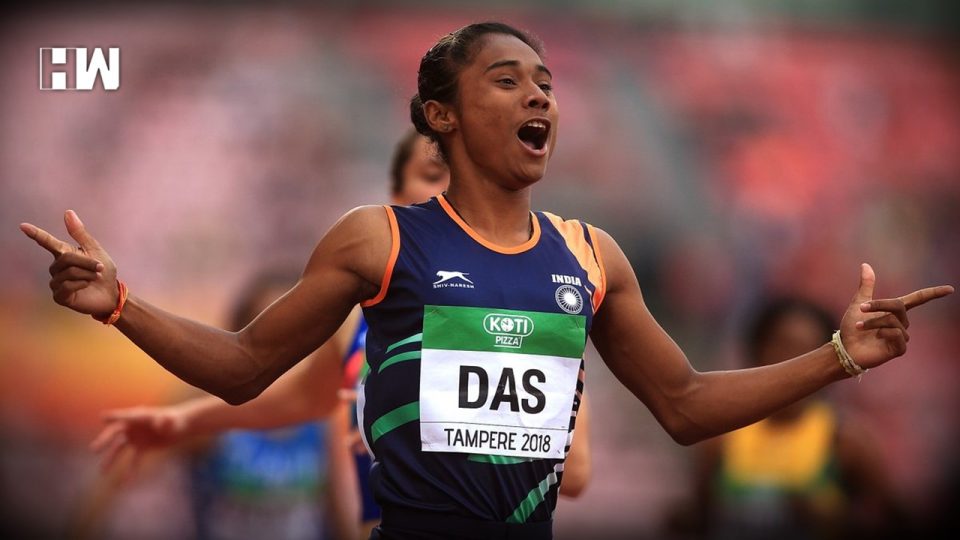Guwahati | Two citizenship-related issues a register of genuine Indians and a controversial bill kept Assam on the edge in 2018 but there were reasons to rejoice too as a filmmaker and an athlete from the state brought laurels in their respective fields.
Lynching of two youths on suspicion of being child lifters in Karbi Anglong following rumours drew outrage and drove the country to find a solution on how to stop misuse of the social media. Preparation of the National Register of Citizens (NRC) to segregate illegal immigrants from the genuine residents in Assam, however, was the most engaging thing in the state in 2018.
The year dawned with the publication of the first draft of the NRC, which included 1.9 crore out of the total 3.29 applicants in the state as Indian citizens. The second draft published on July 30 included 2.9 crore of the total applicants and 40.07 lakh did not find their names in the document.
The publication of both the drafts received mixed response, with most political and other organisations welcoming it, and the authorities going all out to assure those not included that they will be given ample opportunities to file their claims to prove their identity.
The Trinamool Congress tried to wade into the issue on non-inclusion of over 40 lakh people, claiming they were Bangla-speaking. The state government refused entry to a delegation of TMC MPs and MLAs at Silchar, fearing law and order problem.
The NRC is being prepared under the supervision of the Supreme Court to detect those who might have entered the state illegally after midnight March 24, 1971. This date was decided in the 1985 Assam Accord, signed between then Prime Minister Rajiv Gandhi and the influential All Asaam Students’ Union.
At a time when the NRC dominated the state politics with the official machinery and people actively involved in the process, the visit of a Joint Parliamentary Committee to Assam and Meghalaya from May 7 to 11 for public hearings on the Citizenship Amendment Bill, 2016 raised widespread concern.
The bill, introduced by the Narendra Modi government in Parliament in 2016, seeks to amend the Citizenship Act, 1955 to grant Indian citizenship to Hindus, Sikhs, Buddhists, Jains, Parsis and Christians, who fled religious persecution in Bangladesh, Pakistan and Afghanistan and entered India before December 31, 2014. The bill divided political parties in the state.
The Asom Gana Parishad (AGP), an ally of the BJP-led coalition government, opposed the bill saying, “It violates the Assam Accord” and the party is opposed to determination of citizenship on the basis of religion. The party, which has three of its MLAs in the cabinet, threatened to snap ties with the BJP and quit the government if the bill is passed.
The bill also brought forth divergent stands between the two valleys Brahmaputra and Barak with almost all political and other organisations in the former opposing it tooth and nail while in the latter, most supported and submitted representations seeking its enactment.
Neighbouring Meghalaya and Mizoram governments adopted Cabinet decisions opposing the bill while the Nagaland Cabinet decided to oppose it if “it goes against the interest of the Nagas”.
The bill was expected to create an impact on the just-concluded panchayat polls with the ruling alliance BJP and AGP contesting independently. But the BJP went on to win around 42 per cent of the panchayat and zila parishad seats. The Congress bagged around 32 per cent seats while AGP finished a poor fourth behind independents.
A tragic incident that rocked the state was the gruesome killing of two youths on the suspicion of being child lifters in Karbi Anglong after rumours spread through social media.
The two friends Nilotpal Das and Abhijeet Nath had gone to a picnic spot. During their return, their vehicle was stopped and they were lynched on suspicion of being child lifters. It evoked widespread outrage leading to the arrest of over 70 people for alleged involvement in the incident and for spreading rumours and hate messages via social media. The tragedy drove the country to take steps as how to regulate the social media to avoid such incidents.
It was, however, not all gloom that prevailed during the year and the state erupted in joy when filmmaker Rima Das’s “Village Rockstars” was selected as the country’s official entry for the Academy award.
Though it failed to make to the final round of the Academy award, the film, which portrays the story of a poor girl aspiring to be a guitarist and play as a band with her friends, went on to win more than 45 awards, including four national awards with the Swarna Kamal for the best film being its crowning glory, besides travelling to more than 80 film festivals across the world.
Eighteen-year-old Hima Das became the first Indian woman to win gold at an IAAF event. She came first in the 400 metres at the World Under-20 Athletics Championships in Finland by clocking 51.46 seconds.
Later at the Asian Games in Jakarta, she won silver after setting a national record of 50.79 seconds in 400m final. She also won gold in the women’s 4 400 m relay and silver in the 4×400 m mixed relay.
On Christmas, Assam saw the opening of the Bogibeel bridge, the country’s longest rail-road bridge at 4.94 km, by Prime Minister Narendra Modi.
As an independent media platform, we do not take advertisements from governments and corporate houses. It is you, our readers, who have supported us on our journey to do honest and unbiased journalism. Please contribute, so that we can continue to do the same in future.

